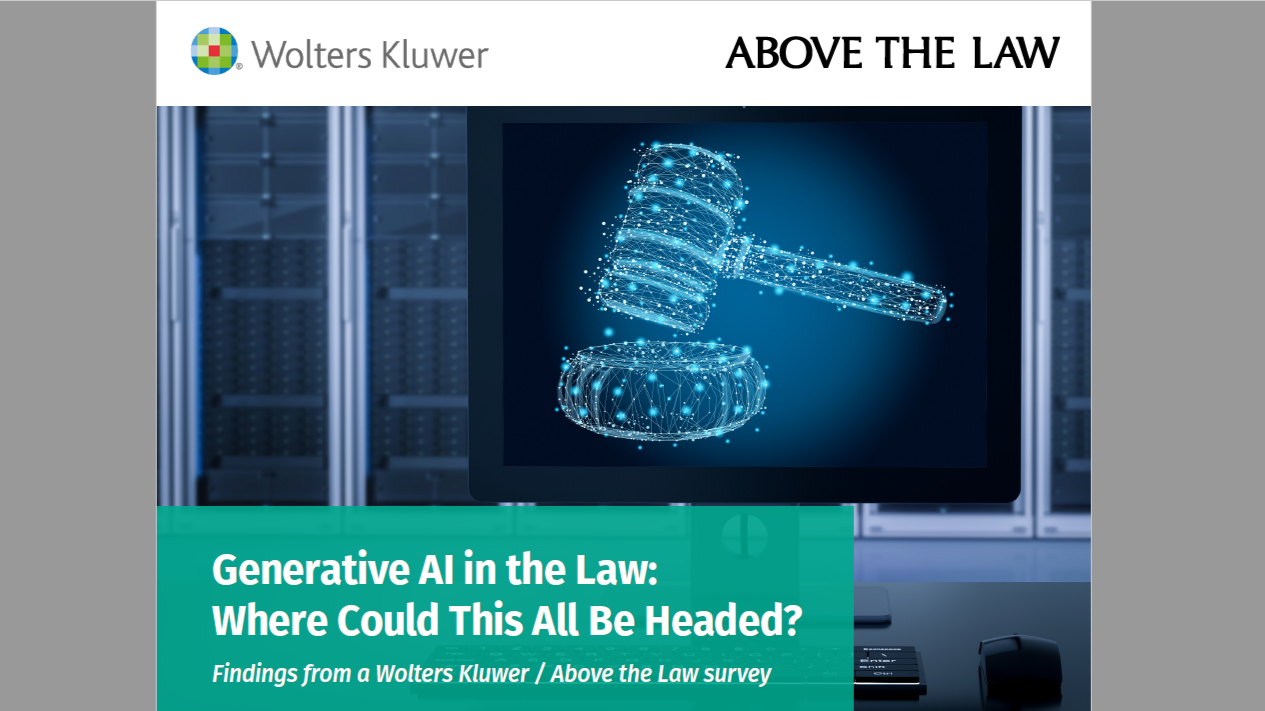Barely a week before the American Association of Law Libraries descends on Boston for its annual convention, a survey out today of legal professionals views on generative AI finds finds that a majority of them believe that librarians and others involved in knowledge management and research are at risk of obsolescence.
In the survey of 275 legal professionals conducted by Wolters Kluwer and Above the Law, Generative AI in the Law: Where Could This All Be Headed?, two thirds of respondents said they believe document review lawyers, librarians, and others involved in knowledge management and research could be replaced by generative AI.
Forty percent said paralegals are also at risk.
The jobs of law firm partners are safest, the survey concludes, but certain practice areas are more likely to be impacted by generative AI, respondents believe.
Practice areas most likely to be impacted include corporate, trust and estates, litigation, intellectual property, and tax. Those least likely to be impacted are energy, criminal law, environmental, healthcare, government, antitrust, and family.
“The responses suggest that corporate work may lend itself to AI, and one can imagine an AI program entirely handling a search for prior art in a patent prosecution,” the survey says.
Not surprisingly, the survey’s respondents say that the greatest benefit of generative AI for legal professionals will be in relieving them from mundane and routine work. More than 80 percent agree that generative AI will create “transformative efficiencies” for research and routine tasks, and 44 percent strongly agree.
Also not surprisingly, the majority of respondents say that the effective use of generative AI will separate successful law firms from unsuccessful firms over the next five years.
That said, the survey quotes Jared Correia, founder of Red Cave Consulting, and a contributor to Above the Law, as saying that even five years is too short a period for lawyers to warm up to generative AI.
“I can’t imagine a significant number of law firms, especially solo practitioners and small firms, adopting AI at a fast pace at all,” Correia said. “It took law firms 10 or 15 years to adopt cloud technology.”
 Robert Ambrogi Blog
Robert Ambrogi Blog